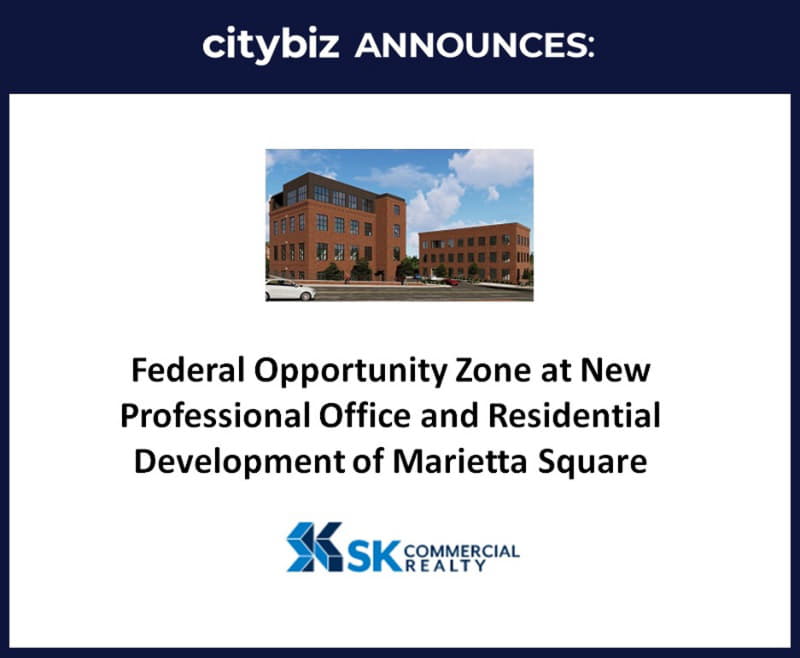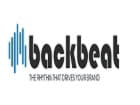Delta Air Lines (NYSE:DAL) today reported financial results for the September quarter 2020. Detailed results, including both GAAP and adjusted metrics, are on page four and are incorporated here.
"While our September quarter results demonstrate the magnitude of the pandemic on our business, we have been encouraged as more customers travel and we are seeing a path of progressive improvement in our revenues, financial results and daily cash burn," said Ed Bastian, Delta's chief executive officer. "The actions we are taking now to take care of our people, simplify our fleet, improve the customer experience, and strengthen our brand will allow Delta to accelerate into a post-COVID recovery."
September Quarter Financial Results
- Adjusted pre-tax loss of $2.6 billion excludes $4.0 billion of items directly related to the impact of COVID-19 and the company's response, including fleet-related restructuring charges and charges for voluntary separation and early retirement programs for Delta employees, which were partially offset by the benefit of the CARES Act grant recognized in the quarter
- Total adjusted revenue of $2.6 billion declined 79 percent on 63 percent lower capacity versus prior year
- Total operating expense, which includes the $4.0 billion of COVID-related items described above, decreased $1.0 billion over prior year. Adjusted for those items and third-party refinery sales, total operating expense decreased $5.5 billion or 52 percent in the September quarter compared to the prior year, driven by lower capacity- and revenue-related expenses and strong cost management in the business
- At the end of the September quarter, the company had $21.6 billion in liquidity
- During the September quarter cash burn (see Note A) averaged $24 million per day, and $18 million per day for the month of September
Revenue Environment
Delta's adjusted operating revenue of $2.6 billion for the September quarter was down 79 percent versus the September 2019 quarter as demand for air travel remains under significant pressure. Passenger revenues declined 83 percent on 63 percent lower capacity. Non-ticket revenue streams have performed relatively better than passenger revenues, with total loyalty revenues declining 60 percent and cargo declining 25 percent.
"With a slow and steady build in demand, we are restoring flying to meet our customers' needs, while staying nimble with our capacity in light of COVID-19," said Glen Hauenstein, Delta's president. "While it may be two years or more until we see a normalized revenue environment, by restoring customer confidence in travel and building customer loyalty now, we are creating the foundation for sustainable future revenue growth."
Setting the Foundation for Recovery
Delta has taken a number of actions to position the company to accelerate into a post-COVID recovery:
Taking great care of Delta people
- Through the voluntary separation and early retirement programs, voluntary unpaid leaves, job sharing and other initiatives, the company has been able to avoid involuntary furloughs for ground and flight attendant employees
- Launching a "Stop the Spread. Save Lives." campaign to emphasize the six core health actions that protect Delta employees against COVID-19, including wearing masks, social distancing, testing and getting a flu shot. Delta is providing no-cost COVID-19 testing and flu shots for its U.S. employees
Improving the customer experience
- Emphasizing health and safety with the Delta CareStandard, a multi-layered approach that includes intense cleaning protocols, blocking middle seats and requiring masks onboard all aircraft
- Reducing complexity for customers by eliminating change fees for nearly all domestic fares and redeposit/reissuance fees on domestic reward tickets for SkyMiles Members
- Taking a customer-centric approach to refunds, with approximately $2.8 billion returned to customers year-to-date
Simplifying the fleet
- Restructuring its Airbus and CRJ aircraft order books to better match the timing of aircraft deliveries with network and financial needs over the next several years. The restructuring reduces aircraft purchase commitments by more than $2 billion in 2020 and by more than $5 billion through 2022
- Accelerating its fleet simplification strategy, which is intended to modernize and streamline the company's fleet, enhance the customer experience and generate cost savings. The company has announced plans to accelerate retirements of nearly 400 aircraft by 2025, including more than 200 in 2020
Cost Performance
Total adjusted operating expense for the September quarter decreased $5.5 billion or 52 percent versus the prior year quarter excluding $3.1 billion in charges related to the voluntary separation and early retirement programs for employees, $2.2 billion in restructuring charges from fleet-related decisions, and a $1.3 billion CARES Act benefit. This performance was driven by a $1.8 billion or 78 percent reduction in fuel expense, a 75 percent reduction in maintenance expense from parking or retiring nearly 40 percent of mainline aircraft and lower volume- and revenue-related expenses. Salaries and benefits expense was down 32 percent as a result of approximately 18,000 employees electing to depart the company in addition to benefits from voluntary unpaid leaves, work hour reductions and other initiatives.
Non-operating expense for the quarter was $349 million higher versus the prior year quarter, driven primarily by $221 million in higher interest expense from increased debt levels the company has incurred during the COVID-19 pandemic.
"Our results this quarter were underpinned by a strong focus on costs, as we reduced adjusted operating expenses by more than 50 percent, similar to the June quarter, despite flying 23 points more capacity," said Paul Jacobson, Delta's chief financial officer. "That cost focus allowed the increase we've seen in net sales to flow directly into an improvement in our daily cash burn, which improved from $27 million per day in June to $18 million per day in September."
Balance Sheet, Cash and Liquidity
Delta ended the September quarter with $21.6 billion in liquidity. Cash used in operations during the quarter was $2.6 billion. Daily cash burn averaged $24 million for the quarter, with an average of $18 million for the month of September.
At the end of the September quarter, the company had total debt and finance lease obligations of $34.9 billion with adjusted net debt of $17.0 billion, $6.5 billion higher than December 31, 2019. In September, Delta completed the largest debt offering in aviation history, raising $9.0 billion at a blended average rate of 4.75 percent secured by its SkyMiles loyalty program. In addition, the company borrowed $1.5 billion at a blended yield of 4.4 percent in connection with the issuance of tax-exempt bonds, that will be used to finance the LaGuardia airport project. The company's total debt had a weighted average interest rate of 4.3 percent at September 30, 2020.
Subsequent to the end of the quarter, the company repaid the $3 billion, 364-day term loan that it entered into in March, increasing its unencumbered asset base to $9 to $10 billion of aircraft, engines and spare parts and reducing remaining debt amortization and maturities to $2.3 billion through the end of 2021. The company also repaid $2.6 billion under its revolving credit facilities drawn down in March 2020.
At the end of the September quarter, the company's Air Traffic Liability stood at $4.6 billion, including a current liability of $4.4 billion and a non-current liability of $0.2 billion. The non-current liability represents the current estimate of tickets to be flown, as well as credits to be used, beyond one year. Travel credits represent approximately 60 percent of the Air Traffic Liability at the end of the September quarter.
CARES Act Accounting, Fleet Restructuring and Voluntary Separation and Early Retirement Program Charges
In the September quarter, the company received $701 million under the payroll support program (PSP) of the CARES Act, consisting of $491 million in additional grant funds and a $210 million increase in the low-interest, unsecured 10-year loan. The September quarter amount includes an incremental $157 million beyond the initial $5.4 billion Delta was allocated in April 2020. In the September quarter, approximately $1.3 billion of the grant was recognized as a contra-expense, which is reflected as "CARES Act grant recognition" on the Consolidated Statements of Operations. The company expects to use the remaining proceeds from the PSP by the end of 2020.
During the September quarter, the company made the decision to retire its 717-200 fleet and the remainder of its 767-300ER fleet by 2025 and its CRJ-200 fleet by 2023. As a result of these decisions, the company recorded $2.2 billion in fleet-related charges, which are reflected in "Restructuring charges" on the Consolidated Statement of Operations.
The company offered voluntary separation and early retirement programs to employees during the September quarter. Approximately 18,000 employees participated in the programs, with most leaving the company August 1, resulting in a $3.1 billion restructuring charge in the September quarter, which is reflected in "Restructuring charges" on the Consolidated Statement of Operations. Cash payments in connection with these programs totaled $813 million in the September quarter, and these payments are excluded from daily cash burn figures. The company anticipates an additional $150 to $250 million in cash payments in the December quarter, $600 million in 2021 and the remaining payments in 2022 and beyond.
September Quarter Results
September quarter results have been adjusted primarily for the CARES Act grant recognition and restructuring charges described above.
About Delta Air Lines Delta Air Lines (NYSE: DAL) is the U.S. global airline leader in safety, innovation, reliability and customer experience. Powered by our employees around the world, Delta has for a decade led the airline industry in operational excellence while maintaining our reputation for award-winning customer service.
Today, and always, nothing is more important than the health and safety of our customers and employees. Since the onset of the COVID-19 pandemic, Delta has moved quickly to transform the industry standard of clean while offering customers more space across the travel journey. These and numerous other layers of protection ensure a safe and comfortable travel experience for our customers and employees.
With our mission of connecting the people and cultures of the globe, Delta strives to foster understanding across a diverse world and serve as a force for social good.










